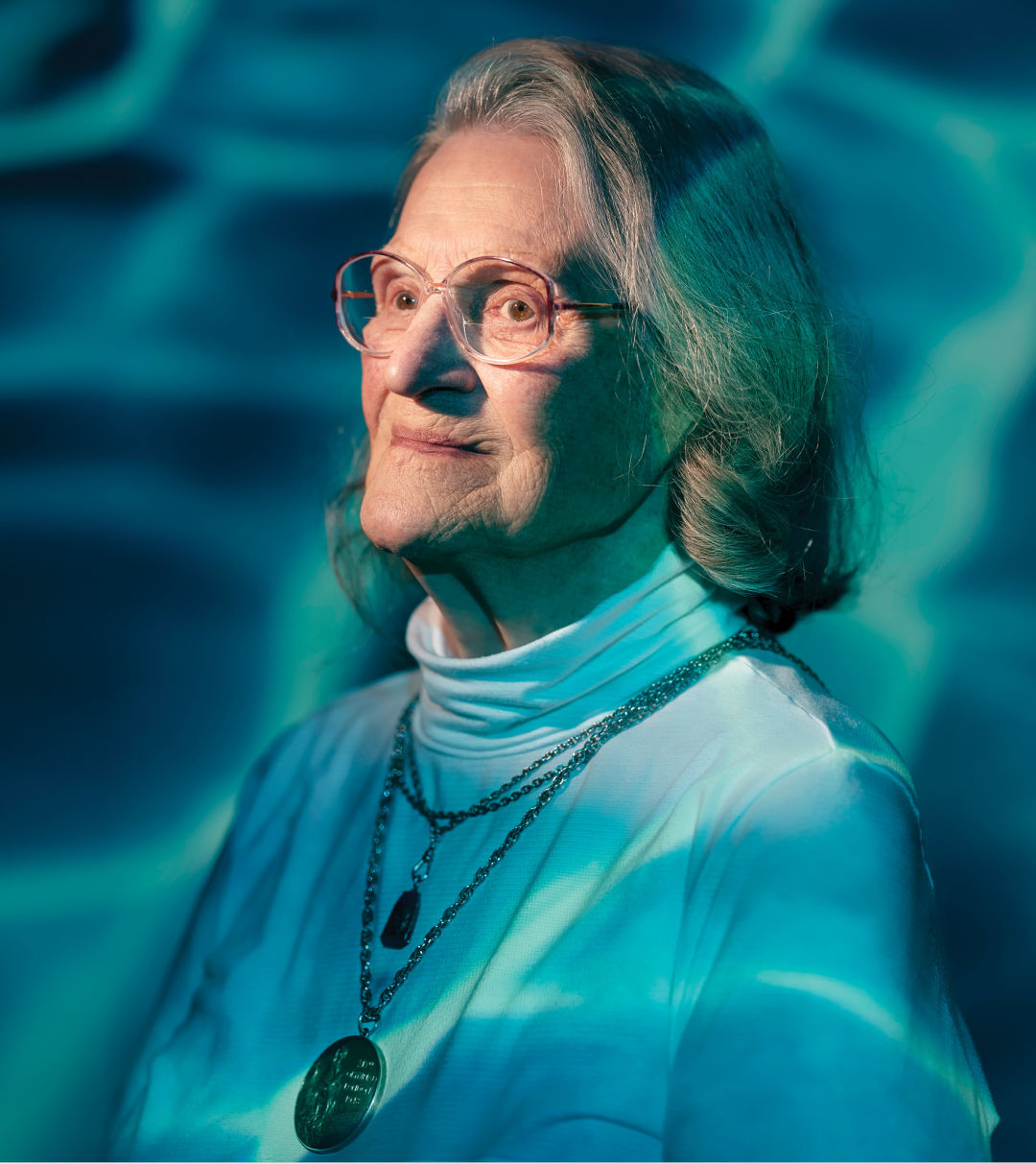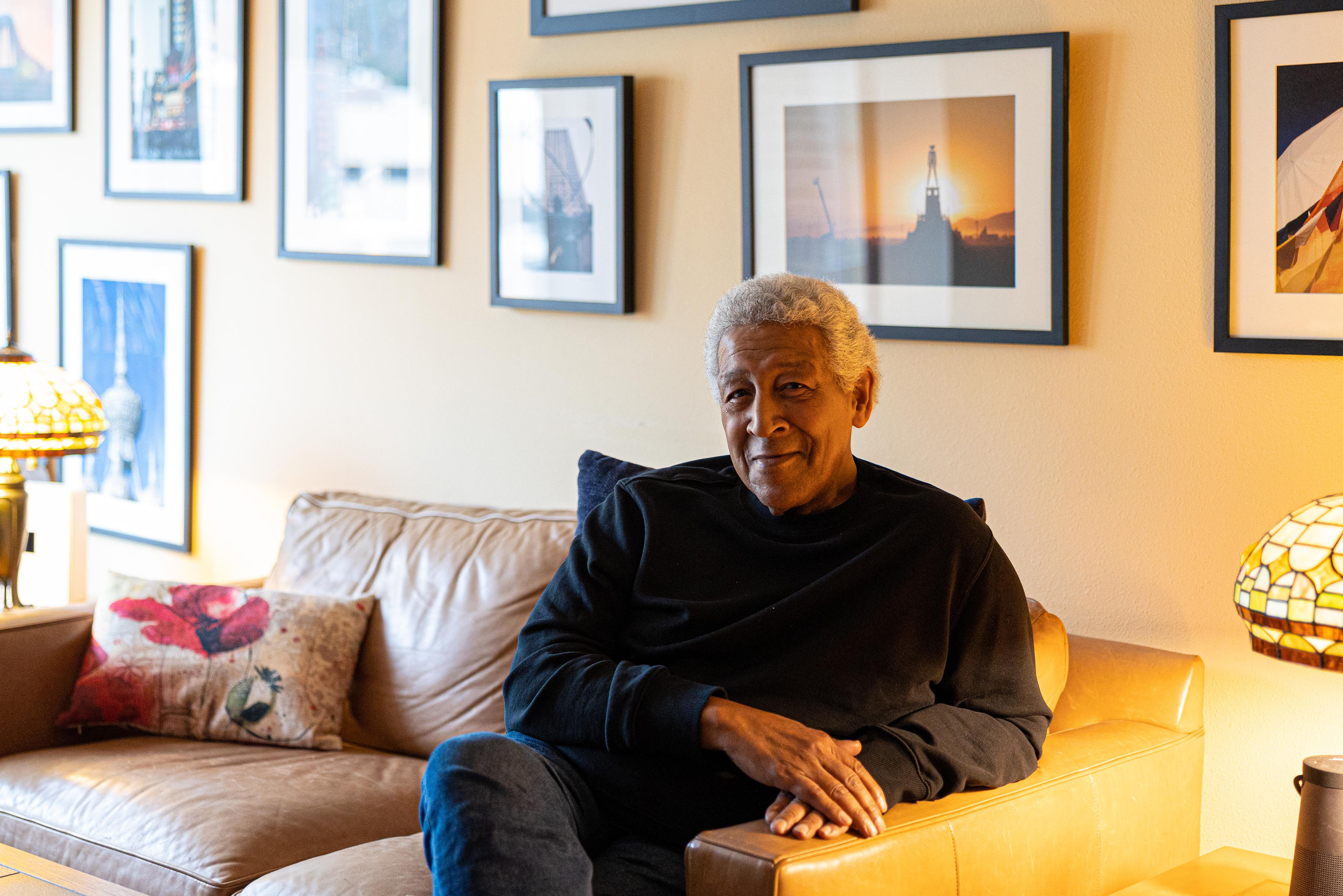This 93-Year-Old Oregonian Won a Silver Medal at the 1948 Olympics

Suzanne Zimmerman Edwards, wearing her silver medal from the 1948 Olympics
Image: NASHCO PHOTO
At 93, Suzanne Zimmerman Edwards has stories that can reach back over a century. One grandfather served in the US Navy during the Civil War; the other was an early Portland brewer whose horse-drawn wagon once collided with a train. The West Linn High grad entered the history books herself as one of the Cody Kids, a legendary swim team coached by Jack Cody at the Multnomah Athletic Club. Featured in newspaper stories in the ’40s with headlines calling her “mermaid” and “sweetie,” Edwards won silver in backstroke at the 1948 London Olympics (that’s her medal, above). Out of the pool for more than a decade, today she immerses herself in work by local artists (she’s a big fan of James Lavadour and Gregory Grenon) and a steady stream of library books. We dove deep into her story.
I grew up in Lake Grove [south of Portland]. That lake was mine. I swam in it every day, every summer. The Multnomah Athletic Club had this great team, and my father knew a woman who was in charge of the pool. So he called and said, “Can Suzi come in for a tryout with Jack Cody and the team?” I went down and did a little swimming, and the coach said yes. We swam three times a week: Tuesday night from 7 to 8, Friday night from 7 to 8, Saturday morning from 10:30 to 11:30. That doesn’t make sense to people now. They spend hours every day.
We were called the Cody Kids. People to this day, they don’t say Suzanne Zimmerman, they say, “Oh, you were a Cody Kid!” We were part of Portland during World War II, because all the fellas were gone, and everybody was upset with the war. And what did they wake up to in their morning paper? A sports page full of beautiful young teenagers. People could open the paper and see all these Portland teenage girls doing these national swimming races.
I didn’t earn one penny. It was so amateur, we couldn’t even wear Jantzen suits for a long time. Our coach was afraid that they would say we were advertising and getting money from it. We wore Mabs.
The Multnomah Club was a rich old man’s club, and there was money there. Aaron Frank [then president of Meier & Frank department store] would give money to send the team back to nationals and to do special things: to see that we stayed at good hotels and ate good food. I had an honorary life membership [to the MAC], but it’s not my lifestyle.
We went [to the London Olympics] on the SS America. The girls swimming team was housed in a women’s school. There was no Olympic Village. People were spread all over every place. We got settled into our quarters, and then we had a present from the US Olympic Committee: a carton of cigarettes. Isn’t that something?
Nancy [Merki, a fellow Cody Kid who took up swimming after surviving polio] married a young man from Asheville who was related to Aaron Frank and had come here to train in the business. He was a dear person; all the girls fell in love with him, including me. But he chose Nancy. He died about four years later of a brain tumor. It was very sad. Brenda [Helser, another teammate], the glamorous one, when we were at the Olympics she met a count from Paris, and he fell for her. She married the count and became a countess. And Mary Anne [Hansen], she married a doctor over in North Portland and ended up with an orchid collection from here to the backyard.
[People always think] if you’ve been in the Olympics, you are brilliant, you are rich and glamorous, and I wasn’t any of these. But that’s the way people looked at me. It was miserable. Just miserable. I worked at Meier and Frank’s for a lot of time. Meier and Frank’s was very good to me, and one time they filled one of their windows with all my trophies and a great big picture of me. They did things like that way back when.
I used to be faithful and go down twice a week to Tualatin Hills—it’s a good pool there. One day [10 or 15 years ago] I went down, I dove in, and swam half a length and said to myself, “What in the hell are you doing?” I got out and I’ve never been back. Oh, and I also stopped smoking and drinking.
All my life I wanted to be smart. I couldn’t have cared less about the Olympics. Right now I couldn’t care less about the Olympics. I think it’s a disaster. It’s all fluff and TV and show and smiling girls. It was serious business when I was there in ’48.




